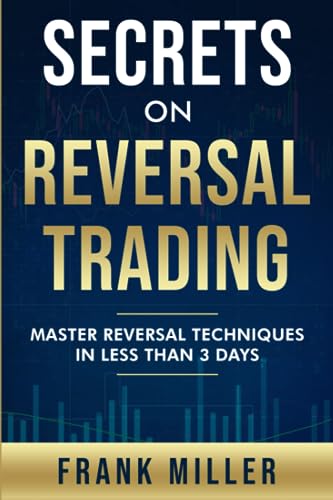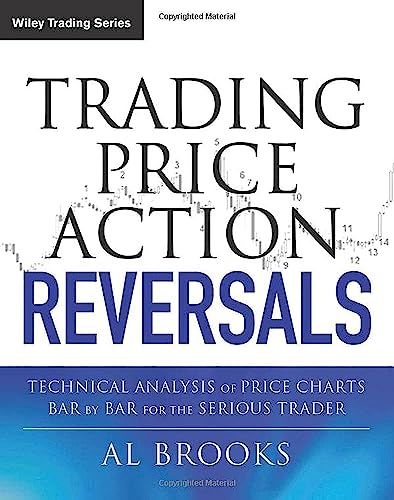- Miller, Frank (Author)
- English (Publication Language)
- 92 Pages - 11/01/2020 (Publication Date) - Independently published (Publisher)
Introduction
Reversal trading is a powerful strategy that has the potential to unlock significant profits in the financial markets. This approach involves identifying key reversal points in price trends and capitalizing on them to enter or exit trades. In this article, we will explore the concept of reversal trading and how it can unleash your trading potential.
Understanding Reversal Trading
Reversal trading is based on the belief that price trends tend to reverse or change direction after reaching certain levels of support or resistance. Traders who employ this strategy closely monitor price patterns, technical indicators, and market sentiment to identify potential reversal points.
The Importance of Identifying Reversal Points
Identifying reversal points is crucial in reversal trading as it allows traders to enter trades at the beginning of a new trend, maximizing profit potential. By recognizing these key levels, traders can avoid entering trades too late or too early, increasing the likelihood of successful trades.
Key Indicators for Reversal Trading
Several indicators can assist traders in identifying potential reversal points. Some commonly used indicators include:
1. Moving Averages: Moving averages help smooth out price data and identify trend reversals when shorter-term moving averages cross above or below longer-term moving averages.
2. RSI (Relative Strength Index): RSI measures the speed and change of price movements. Oversold or overbought conditions indicated by RSI can signal potential reversals.
3. Candlestick Patterns: Candlestick patterns, such as doji, hammer, or engulfing patterns, can provide valuable insights into potential trend reversals.
Implementing Reversal Trading Strategies
To effectively implement reversal trading strategies, traders need to combine technical analysis with risk management principles. It is essential to set clear entry and exit points, define stop-loss levels, and manage position sizes to minimize potential losses.
Benefits and Risks of Reversal Trading
Reversal trading offers several benefits, including the potential for high-profit margins, the ability to capture trend reversals early, and the opportunity to trade in both bullish and bearish markets. However, it is important to note that reversal trading also carries risks, such as false signals and sudden market volatility.
Conclusion
Reversal trading is a powerful strategy that can unleash your trading potential by identifying key reversal points in price trends. By understanding the concept of reversal trading, utilizing key indicators, and implementing effective strategies, traders can increase their chances of success in the financial markets. Remember to always practice proper risk management and stay updated with market conditions to make informed trading decisions.
- Miller, Frank (Author)
- English (Publication Language)
- 92 Pages - 11/01/2020 (Publication Date) - Independently published (Publisher)
- Hardcover Book
- Brooks, Al (Author)
- English (Publication Language)
- 576 Pages - 01/24/2012 (Publication Date) - Wiley (Publisher)
- Turner, Robert (Author)
- English (Publication Language)
- 83 Pages - 06/18/2023 (Publication Date) - Independently published (Publisher)
- Teally, Robb (Author)
- English (Publication Language)
- 142 Pages - 08/06/2024 (Publication Date) - Independently published (Publisher)
Last Updated on September 29, 2023 by ingmin




